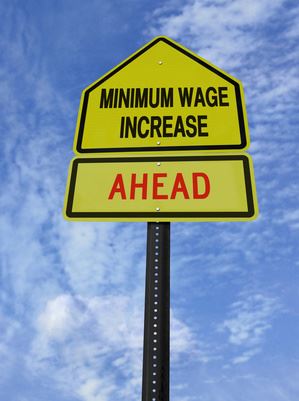Employers should be planning ahead for the national minimum wage and pension contribution increases which will take effect from April 2018.
 The new rates will be:
The new rates will be:
Age 25 and over £7.83 per hour, increased from £7.50 per hour
Age 21 to 24 £7.38 per hour, increased from £7.05 per hour
Aged 18 to 20 £5.90 per hour, increased from £5.60 per hour
Under 18s £4.20 per hour, increased from £4.05 per hour
Apprentices £3.70 per hour, increased from £3.50 per hour
New rates must be applied to the next pay period on or after the date an increase begins. Employees who reach a new pay bracket should have their new pay rate applied in the next pay period after it is applicable.
The apprentice rate only applies to apprentices under 19 or apprentices over 19 and in their first year of apprencticeship. Apprentices in the second or subsequent year of their apprenticeship must be paid at the rate applicable for their age.
The national minimum wage does not apply to the self-employed, volunteers, company directors, agricultural workers or some family members.
Employers may have to pay a little more national insurance contributions for their employees based on the increase in wages. The earnings threshold before these contributions are paid has increased by £5 a week but there is also the £3,000 per annum employment allowance which can be used against employer national insurance contributions each year so there may not be a significant cost to the employer.
 Pension contributions will also increase from April 2018 both for employees and employers. Those employees who are enrolled in a pension scheme will see an increase in their total contribution from 2% to 5%. Employers will need to contribute 2% to their employees' pension and employees will contribute 3%. The 3% employee contribution will be deducted from the employees' pay and paid into their pension scheme.
Pension contributions will also increase from April 2018 both for employees and employers. Those employees who are enrolled in a pension scheme will see an increase in their total contribution from 2% to 5%. Employers will need to contribute 2% to their employees' pension and employees will contribute 3%. The 3% employee contribution will be deducted from the employees' pay and paid into their pension scheme.
